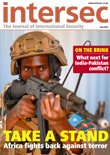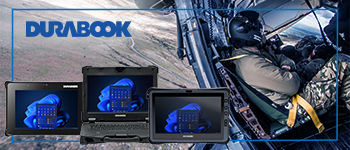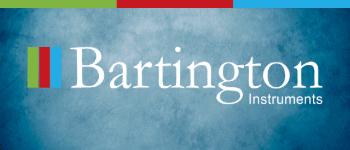International Threat Watch 2015
Terrorist Groups
Matthew Henman examines the key terrorist groups to watch in 2015
The Islamic State, previously known as the Islamic State in Iraq and the Levant (ISIL), is a Sunni militant Islamist group founded in Iraq in October 2004. Initially known as al-Qaeda in Iraq (AQI), the group subsequently created a series of front organisations, the longest lasting of which was the Islamic State in Iraq (ISI), which became ISIL in 2013 and then the Islamic State in June 2014. The group has long maintained a concerted, high-profile campaign of mass-casualty violence in Iraq, but from April 2013 onwards began fighting in Syria, targeting both government forces and rival militant groups, whether Islamist, nationalist or Kurdish. This provided increased access to manpower and materiel, and resulted in major offensives in Iraq in January and June and the capture of key urban centres across the west and north of the country. On the back of these victories, the Islamic State declared the re-establishment of the caliphate in its significant and contiguous territorial holdings across Iraq and Syria. The group will likely remain the pre-eminent regional threat in 2015 as it looks to expand its control. The group also poses a threat more widely, particularly in south Asia where it has been attempting to gain a foothold. Its activities may also inspire lone individuals and small terrorist groups.
Jamaat Ahl al-Sunna li-Daawa wal-Jihad, better known as Boko Haram, is a militant Islamist group fighting for the implementation of Sharia (Islamic law) in Nigeria. It is primarily active in the northern states of Borno, Yobe, Adamawa, Kano, Bauchi, and Kaduna. After several abortive uprisings, the last of which led to the death of leader Mohammed Yusuf in 2009, the group re-emerged under the leadership of Abubakar Shekau in late 2010 and resumed its armed campaign. Initially typified by small-arms attacks, Boko Haram operations grew more sophisticated. Following the imposition of a state of emergency in Borno, Yobe and Adamawa in May 2013, Boko Haram began to target the local civilian population for allegedly supporting security forces. This was augmented across mid-2014 with the seizure of key towns across the northeast, with the military unable to counter the group’s expansion. Boko Haram has eschewed any notion of negotiating with the government and is likely to prove a source of ongoing serious violence across northeast Nigeria, as well as further south, in 2015.
The Fuerzas Armadas Revolucionarias de Colombia (FARC) is a Marxist insurgent group based and operating in Colombia, and represents the best equipped, trained and organised guerrilla organisation in Latin America. The group was founded in 1964 as the armed wing of the Colombian Communist Party and initially engaged in a rural insurgency. FARC’s insurgency intensified through the 1980s and 1990s, peaking in the early 2000s wherein the group controlled large sections of the country and posed a serious threat to the state. A concerted military counter-insurgency between 2002 and mid-2008 inflicted a series of setbacks on the group, however, notably the deaths of three of its secretariat members in March 2008. Despite these setbacks, FARC has been able to defend its strongholds and continue to launch hit-and-run attacks on against the security forces on a regular basis. While the group continued to launch attacks following the killing of its leader in November 2011, peace talks began in October 2012 and have continued in Havana since. While a long-term settlement to the 50-year insurgency seems feasible in 2015, there is a serious risk of fragmentation within FARC, with factions emerging in opposition to any peace deal.
The Taliban is an Afghan militant Islamist group dedicated to expelling foreign forces, overthrowing the Afghan government and re-establishing its Islamic Emirate of Afghanistan. The Pashtun-dominated group originated in southern and eastern Afghanistan in 1994 as a reactionary force in the civil war that followed the withdrawal of the Soviet Union in 1989 and quickly expanded, capturing Kabul in 1996 and forming its emirate under leader Mullah Mohammed Omar. The Taliban government was toppled following the US-led invasion of Afghanistan in October 2001 and its forces regrouped in neighbouring Pakistan, re-emerging as a low-level insurgent force in the following years. The insurgency intensified from 2006 onwards and the level of violence against international coalition and Afghan security forces steadily increased. While coalition forces have prevented the Taliban from overthrowing the government, the transition of security responsibilities ahead of a withdrawal by the end of 2014 has seen the group increasing its territorial control. While a contingent of international forces will remain in Afghanistan following the wider withdrawal, 2015 will see the Taliban and affiliated forces attacking state and military forces and increasingly challenging the state and establishing growing areas of local control.
Turkistan Islamic Party (TIP) is a separatist group, founded in 1989, that draws recruits from China’s minority ethnic Uighur population. It aims to establish an independent Uighur state in China’s Xinjiang Uighur Autonomous Region. In the late 1990s, confronted with an increasingly restrictive operating environment in Xinjiang, TIP established bases and training facilities in Taliban-controlled Afghanistan, relocating to Pakistan after 2001. In January 2008, TIP emerged from one of its characteristic periods of dormancy and began actively seeking to disrupt preparations for the 2008 Beijing Olympics.
Following the killing of TIP’s leader in a US drone strike in Pakistan in February 2010, the group returned to operational dormancy until November 2013 when it claimed an attack in Beijing’s Tiananmen Square. Since then the group has claimed responsibility for several further attacks across Xinjiang, ranging from knife attacks to low-capability improvised explosive devices (IEDs), against a wider backdrop of Uighur separatist violence growing in both frequency and scale. While the TIP could not be definitively linked to all recorded attacks, it remains the most significant and active Uighur militant group currently and will likely be instrumental in further such violence across 2015.
Matthew Henman is Head of IHS Jane’s Terrorism and Insurgency Centre









